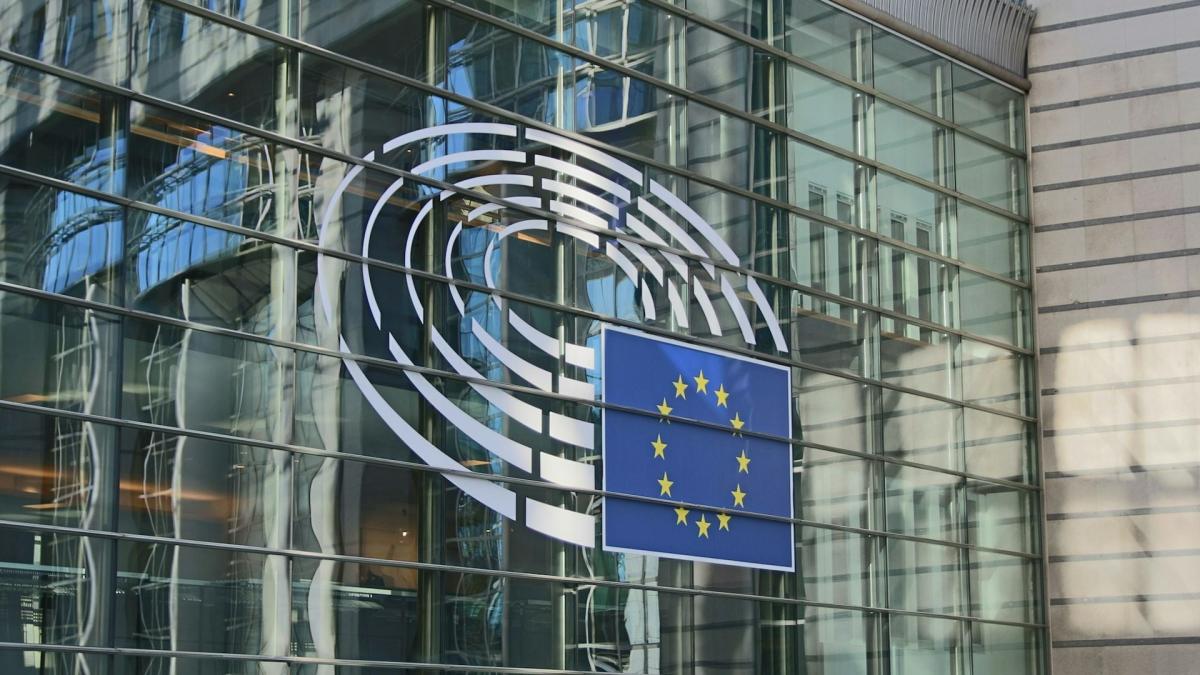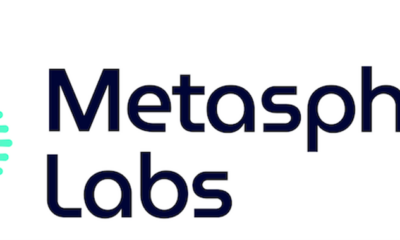Tech
Ahead of the European elections, the cryptocurrency industry pushes the merits of blockchain as political attention shifts to artificial intelligence

-
The European Union elections in June could see a new set of lawmakers take charge of cryptocurrency issues.
-
The architects behind the EU’s landmark legislation on cryptocurrency markets may be returning, but industry players are still hoping for a more progressive assortment.
That of the European Union more than 370 million eligible voters are set to elect 720 parliamentarians this June – and as the focus of tech policy has shifted to artificial intelligence (AI), blockchain industry bodies are racing to demonstrate that the technology is vital to the bloc’s digitization efforts.
The EU has already established the first global rules on cryptocurrencies along with stringent anti-money laundering measures for the sector. But with revisions to the landmark Markets in Crypto Assets (MiCA) regulation likely in the works and the political futures of the legislation’s two main architects up in the air, the European cryptocurrency industry is preparing for change.
The change could mean a number of things, including the industry potentially losing the handful of lawmakers who actually know crypto or a slowdown in decision-making. Even more challenging is being able to outline the industry’s new role in a conversation focused on artificial intelligence (AI) – something the EU has already started to legislate.
Earlier this year, four major EU industry groups joined forces to draw up a blueprint manifest pledging to promote the use of blockchain technology in the bloc to avoid falling behind “in the global race” towards a digital economy.
The groups say so timing for the poster it is “critical considering the upcoming elections and political changes that Europe will undergo” this year and supports the need to continue work on blockchain.
“As we recognize the intrinsic value of technologies such as artificial intelligence, virtual reality and robotics, we believe that blockchain will serve as a layer of trust for the convergence of all these technologies, allowing them to build on each other and form the structure of the future digital economy”, reads the manifesto.
The story continues
Young blood
The associations’ hope is that a new and, hopefully, younger Parliament will be easier to approach than the previous one, at least as regards digitalisation.
For policy related to cryptocurrencies and blockchain in particular, political parties may matter less than the age of lawmakers, according to Robert Kopitsch, secretary general of Blockchain for Europe, one of the four industry associations that collaborated on the manifesto.
“If you have a wallet full of cryptocurrencies, you’re much more open to the idea that these are going to be part of the future economy, right? Because you have it, you know how it works, you understand it,” Kopitsch said during an interview with CoinDesk .
Marina Markezic, co-founder of the European Crypto Initiative (EUCI), who also collaborated on the manifesto, says younger politicians are also likely to be more tech-savvy.
“So it would also be easier to explain, talk to them” about blockchain technology, Markezic said.
But first, according to Benedikt Faupel of the German digital industry association Bitkom, things overall could potentially slow down, “just because we don’t know how the elections will go.”
MiCA architect ready for re-election
Crypto policy in the European Parliament (EP) didn’t have much support at the start and was led by “mostly three or four people,” Markezic said.
Kopitsch and Markezic agree that Greek politician and former Vice President of the European Parliament Eva Kaili was the driving force behind cryptocurrencies in government. Kaili’s dismissal from Parliament due to a high-profile corruption scandal was seen as a blow to political efforts, but thanks to German legislator Stefan Berger, MiCA managed to reach the end of the line.
Berger, who was the package’s rapporteur and tasked with managing the framework through negotiations, helped champion an effort by green politicians in the European Parliament to limit the use of the energy-intensive proof-of-work consensus mechanism which would effectively ban Bitcoin. in the union.
“He did so much,” Markezic said, referring to Berger’s work on MiCA.
Berger is currently rapporteur for the EU’s legislative proposals for a digital euro, but is also running for re-election this June. According to Jonas Gross, head of the Digital Euro Association, the results of an election of this magnitude are difficult to predict, and it is “impossible to discuss specific officials who may not return this year.”
“We see that the European Parliament is currently, under the leadership of Stefan Berger, following a very innovative and open-minded approach when it comes to cryptocurrencies, stablecoins and the digital euro,” Gross added. “It would be desirable to create a Parliament with a similar innovative approach to advance these digital money issues in a way that benefits the EU.”
Another MiCA architect whose future is up in the air is Mairead McGuinness, who serves as financial stability commissioner. MiCA was proposed by the European Commission under the purview of McGuinness. You have said that you will not participate in the 2024 parliamentary elections, but you are willing to remain for another term as Commissioner, although that decision is ultimately up to the overall EU government.
Digital euro
With MiCA all but out of the way, another key framework for some cryptocurrency observers is the EU’s push for a central bank digital currency, which is fueling controversy – and even conspiracy theories – with some politicians raising concerns that a digital euro it could give EU governments too much power and access to private information.
According to Anne-Sophie Gógl, a member of the executive board of the Digital Euro Association, some right-wing political parties are using plans for a digital euro to “create a climate against the European Union”.
“They are using words like control and surveillance. They also accuse the digital euro of excluding marginalized groups,” Gógl said in a written statement. “We fear that this trend will also have an impact in Europe after the elections: a greater share of right-wing populist representatives in the European Parliament and therefore the risk that the topic of the digital euro will be misused for disinformation.”
The polls are projected growing support for the far rightbut probable not enough to tip the balance in favor of anti-EU sentiment these elections.
However, if these parties manage to win a large chunk of new seats, this could “massively slow down the decision-making process” for a digital euro, Gógl said.
Positioning blockchain in artificial intelligence
EU technology policy priorities have shifted away from cryptocurrencies to focus on artificial intelligence, and the cryptocurrency industry is pushing for the application of blockchain technology alongside artificial intelligence, according to Anja Blaj, policy expert at EUCI.
“What we argue about most of the time is that AI alone also raises a lot of fears, and the way those fears can often be addressed is through blockchain technology,” Blaj said, referring to arguments according to which blockchain could be used to help preserve the integrity of the data provided to artificial intelligence systems AND decentralize them.
This will not be the first time industry bodies have pushed for the acceptance of blockchain technology over the adoption of speculative assets. During the latest bear market, which saw the fall of several cryptocurrency giants, the industry quickly pivoted to promoting blockchain applications in traditional finance and other areas at events like World Economic Forum.
“What people are actually moving away from is the financial connotation of the blockchain industry. So, very often, we actually push for the narrative of focusing on the ReFi of regenerative finance… on supply chains or how, for example, data can be managed,” Blaj said during an interview with CoinDesk.
Regenerative Finance (ReFi) sees cryptocurrency projects investing in sustainability in an attempt to solve some of the problems created by the markets.
Configuring blockchain as something vital to the digitalisation of Europe could prove crucial to the survival of the sector in the region.
When the current government was formed, “there was a lot of hype around blockchain” and Europe was the first to move on policies and initiatives, Markezic said.
“Now we talk more about artificial intelligence and… why would you use your political power to talk about something that may no longer be so present?” Markezic spoke about the risk of waning political interest in blockchain.
The elections will take place from 6 to 9 June.
Tech
Hollywood.ai by FAME King Sheeraz Hasan Promulgates a Complete Ecosystem that Unites Web3, Cryptography, AI and Entertainment for Spectacular Global Tech Innovation

The one and only FAME King Sheeraz Hasan is launching Hollywood.ai, a revolutionary platform designed to integrate the cutting-edge realms of Web3, cryptocurrency, AI, finance and entertainment. This revolutionary initiative is set to create a seamless, interactive and intuitive ecosystem where the world’s leading technology luminaries can collaborate on innovations, ultimately redefining the future of digital interaction.
Hollywood.ai represents the convergence of the most complex technologies of all time. Fusing Web3 principles, cryptocurrency utilities, AI advances, and financial machinery, Sheeraz’s platform aims to become the nucleus for innovation and modernization. It provides a high-tech environment where technology and creativity collide harmoniously, paving the way for new paths in the digital economy.
A defining feature of Hollywood.ai is the integration of cryptocurrency into the AI ecosystem, transforming AI into a tokenized asset with full cryptographic utility. Sheeraz’s novel approach presents new avenues to leverage the myriad capabilities of AI in the financial realm, unlocking unprecedented opportunities for developers and users alike. Through the amalgamation of AI and cryptocurrency, Hollywood.ai is paving the way for an incredibly interconnected digital space unlike anything seen before.
The platform’s design emphasizes the undeniable symbiosis between various technology sectors. Under Sheeraz’s careful orchestration, Web3 technologies facilitate decentralized collaboration, while AI tools offer enhanced potential for data analytics, content creation, and audience engagement. Additionally, the inclusion of financial innovations ensures rapid mobility of both monetization and investments, providing a holistic environment that meets the ever-evolving demands of the technology and entertainment segments.
Sheeraz’s Hollywood.ai is poised to become the premier hub for industry leaders, developers, and creators to support and empower the next generation of digital experiences. This initiative aspires to drive the emergence of new tools, applications, and services that set new standards for advanced engagement and interaction.
Known for making the impossible possible, Sheeraz envisions a future where global audiences actively participate in designing the next A-list stars from scratch. Hollywood.ai will allow users to watch their creations evolve from simple concepts to 3D talents that can act, sing and perform just like human actors.
The Hollywood.ai platform leverages AI technology to deliver personalized fan engagement, real-time sentiment analysis, and informed content creation. By combining cutting-edge AI capabilities with Sheeraz’s deep understanding of celebrity branding, Hollywood.ai gains immense control over public figures.
Undeniably, FAME’s number one strategist Sheeraz Hasan continues to cement his reputation as a pioneer in the fields of FAME and technology. The power and influence of this latest development brings him closer to total world domination.
Tech
Online Broker Futu Offers Cryptocurrency Trading in Hong Kong, With Nvidia and Alibaba Stock as Rewards

Futu Securities International, Hong Kong’s largest online broker, has launched retail cryptocurrency trading in the city, offering shares of Alibaba Holding Group AND Nvidia as a reward in an attempt to attract investors. Futu has begun allowing Hong Kong residents to trade Bitcoin and ether, the world’s two largest cryptocurrencies, directly on the brokerage platform using Hong Kong or U.S. dollars, the company announced Thursday.
The online retail broker said last month that it had received an upgrade to its securities license from the Securities and Futures Commission (SFC), allowing Futu to offer virtual asset trading services to both professional and retail clients in the city.
Futu’s move comes as Hong Kong seeks to boost its attractiveness as a business hub for virtual assets, with the city government launching a series of new cryptocurrency policy initiatives over the past two years, including a mandatory licensing regime for cryptocurrency exchanges.
In addition to offering cryptocurrency trading on its flagship brokerage app, Futu is also seeking a cryptocurrency trading license for its new PantherTrade platform. That platform is among 11 in Hong Kong that are currently “deemed licensed” for cryptocurrency trading, an arrangement that allows them to operate in the city while they await full approval from the SFC.
Hong Kong’s progress in becoming a crypto hub has encountered various challenges, including exit of the major global platforms and relatively low trading activity for cryptocurrency exchange-traded funds offered on local stock exchanges.
Futu is now offering a series of incentives to potential investors, amid a cryptocurrency bull market that has seen the price of bitcoin rise 45 percent this year.
Hong Kong investors who open accounts in August and deposit HK$10,000 (US$1,280) over the next 60 days can receive HK$600 worth of bitcoin, a HK$400 supermarket voucher or a single Chinese stock. e-commerce giant Alibaba. Alibaba owns the South China Morning Post.
By holding 80,000 U.S. dollars for the same period, users can get 1,000 Hong Kong dollars in bitcoin or a share of U.S. artificial intelligence (AI) chip maker Nvidia, whose shares have risen more than 140 percent this year.
A Futu representative said the brokerage firm will also waive cryptocurrency trading fees starting Thursday until further notice.
Futu is the first online brokerage in Hong Kong to allow retail investors to buy cryptocurrency directly on its platform. SFC rules require it to offer this service through a tie-up with a licensed cryptocurrency exchange. Futu is partnering with HashKey Exchange, one of only two licensed exchanges in Hong Kong, according to the representative.
Futu’s local rival Tiger Brokers also said in May that it had begun offering cryptocurrency trading services to professional investors on its platform following a license update. The SFC defines professional investors as those with more than HK$8 million in their investment portfolios or corporate entities with assets exceeding HK$40 million.
Tech
Tech Crash: $2.6 Trillion Market Cap Vanishes as ‘Magnificent 7’ Prices Stumble

A group of seven megacap tech stocks, often called the Magnificent 7, have lost more than $2.6 trillion in value over the past 20 days, or an average of $125 billion per day over the period. In total, these stocks have lost “three times the value of the entire Brazilian stock market.”
This according to the economic news agency Letter from Kobeissiwho noted on the microblogging platform X (formerly known as Twitter) that the Magnificent 7 batch “is worth as much as Nvidia’s entire current market cap in 20 days,” with Nvidia itself having lost $1 trillion from its high.
Source:Letter from Kobeissi on the X
The group, which includes Nvidia, Microsoft, Amazon, Apple, Alphabet, Meta and Tesla, has undergone a significant correction: in the last 20 days Nvidia has lost 23% of its value, or about $800 billion, while Tesla has fallen 19%, losing $164 billion.
Microsoft, Apple, Amazon, Alphabet and Meta all posted losses of between 9% and 15%, losing between $257 billion and $554 billion in market capitalization, wiping out a total of $200 billion more “than every single German stock market tock combined.”
Tech titans, which have outperformed the broader S&P 500 index since the market bottom of 2022, are now facing a reckoning as investors grow increasingly wary about the sustainability of their meteoric rise, with Nvidia taking the lead soaring 110% since the beginning of the year and over 2,300% in the last five years.
Earnings reports from these companies, starting with Microsoft and culminating with Nvidia in late August, will be closely watched for signs of weakness. Their performance could set the tone for broader market sentiment, with implications for everything from cryptocurrency to other high-risk assets.
Their poor performance comes after a leading macroeconomist, Henrik Zeberg, reiterated his forecast of an impending recession that will be preceded by a final wave in key sectors of the market, but which can potentially be the worst the market has seen since 1929the worst bear market in Wall Street history.
In particular, the Hindenburg Omen, a technical indicator designed to identify potential stock market crashes, began flashing just a month after its previous signal, raising concerns about a possible impending stock market downturn.
The indicator compares the percentage of stocks hitting new 52-week highs and lows to a specific threshold. When the number of stocks hitting both extremes exceeds a certain level, the indicator is said to be triggered, suggesting a greater risk of a crash.
Featured Image via Disinfect.
Tech
Trump Fights for Cryptocurrency Vote at Bitcoin Conference

To the Bitcoin Conference 2024 In Nashville, Tennessee, former President Donald Trump delivered a keynote speech.
Trump, the Republican presidential candidate, used the platform to appeal to the tech community and solicit donations for the campaign. During the conference, He said:
I promise the Bitcoin community that the day I take the oath of office, Joe Biden and Kamala Harris’ anti-crypto crusade will be over… If we don’t embrace cryptocurrency and Bitcoin technology, China will, other countries will. They will dominate, and we can’t let China dominate. They are making too much progress as it is.
Trump’s speech focused heavily on cryptocurrency policy, positioning it as a partisan issue. He said that if reelected, he would fire SEC Chairman Gary Gensler on his first day in office, a statement that drew enthusiastic applause from the audience. This statement marked a stark contrast to Gensler’s tenure, which has been characterized by rigorous oversight of the cryptocurrency industry.
The former president outlined several pro-crypto initiatives he would undertake if elected. These include transforming the United States into a global cryptocurrency hub, keeping all government-held Bitcoin as a “national Bitcoin reserve,” establishing a presidential advisory council on Bitcoin and cryptocurrency, and developing power plants to support cryptocurrency mining, emphasizing the use of fossil fuels.
Trump’s current embrace of cryptocurrencies represents a reversal from his stance in 2021, when described Bitcoin as a “scam against the dollar.” He also noted that his campaign has received $25 million in donations since accepting cryptocurrency payments two months ago.
The event featured other political figures, including Republican Senators Tim Scott and Tommy Tuberville, as well as Democratic Representatives Wiley Nickel and Ro Khanna. Independent presidential candidate Robert F. Kennedy Jr. also spoke at the conference.
Trump’s appearance at Bitcoin 2024 reflects growing support for his campaign from some tech leaders, including Tesla CEO Elon Musk and cryptocurrency entrepreneurs Cameron and Tyler Winklevoss.
While Trump has described the current administration as “anti-crypto,” Democratic Congressman Wiley Nickel said Vice President Kamala Harris is taking a “forward-thinking approach to digital assets and blockchain technology.”
This event underscores the growing political importance of cryptocurrency policy in the upcoming presidential election.
Kamala Harris and Democrats Respond on Cryptocurrencies
In a strategic move to repair strained relations, Vice President Kamala Harris’ team has initiated a dialogue with major cryptocurrency industry players. This outreach aims to restore the Democratic Party’s stance on digital assets and promote a more collaborative approach.
THE Financial Times reports that Harris’s advisors have reached out to representatives from industry leaders like Coinbase, Circle, and Ripple Labs. This move comes as the cryptocurrency community increasingly supports Republican candidate Donald Trump, reflecting growing dissatisfaction with the current administration’s cryptocurrency policies.
THE disclosure follows a letter from Democratic lawmakers and 2024 candidates urging the party to reevaluate its approach to digital assets. Harris’s team stresses that this effort is less about securing campaign contributions and more about engaging in constructive dialogue to develop sensible regulations.
The move is part of a broader strategy to reshape the Democratic Party’s image among business leaders, countering perceptions of an anti-business stance. Harris’ campaign aims to project a “pro-business, responsible business” message.
-

 Videos9 months ago
Videos9 months agoCrypto News: Bitcoin, ETH Price, CPI Print, PYTH, WIF & MORE!!
-

 Videos9 months ago
Videos9 months agoCrypto News: Bitcoin Price, ETF, ETH, WIF, HNT & MORE!!
-

 DeFi9 months ago
DeFi9 months agoMetasphere Labs announces follow-up event regarding
-

 Videos9 months ago
Videos9 months agoSolana price potential?! Check out THIS update if you own SOL!!
-

 Videos8 months ago
Videos8 months agoWho Really CONTROLS THE MARKETS!! Her plans REVEALED!!
-

 DeFi6 months ago
DeFi6 months agoPump.Fun Overtakes Ethereum in Daily Revenue: A New Leader in DeFi
-

 News6 months ago
News6 months agoNew bill pushes Department of Veterans Affairs to examine how blockchain can improve its work
-

 DeFi6 months ago
DeFi6 months agoDegens Can Now Create Memecoins From Tweets
-

 News6 months ago
News6 months agoLawmakers, regulators to study impact of blockchain and cryptocurrency in Alabama • Alabama Reflector
-

 Bitcoin6 months ago
Bitcoin6 months ago1 Top Cryptocurrency That Could Surge Over 4,300%, According to This Wall Street Firm
-

 Ethereum8 months ago
Ethereum8 months agoComment deux frères auraient dérobé 25 millions de dollars lors d’un braquage d’Ethereum de 12 secondes • The Register
-

 Videos8 months ago
Videos8 months agoCryptocurrency News: BTC Rally, ETH, SOL, FTM, USDT Recover & MORE!
















